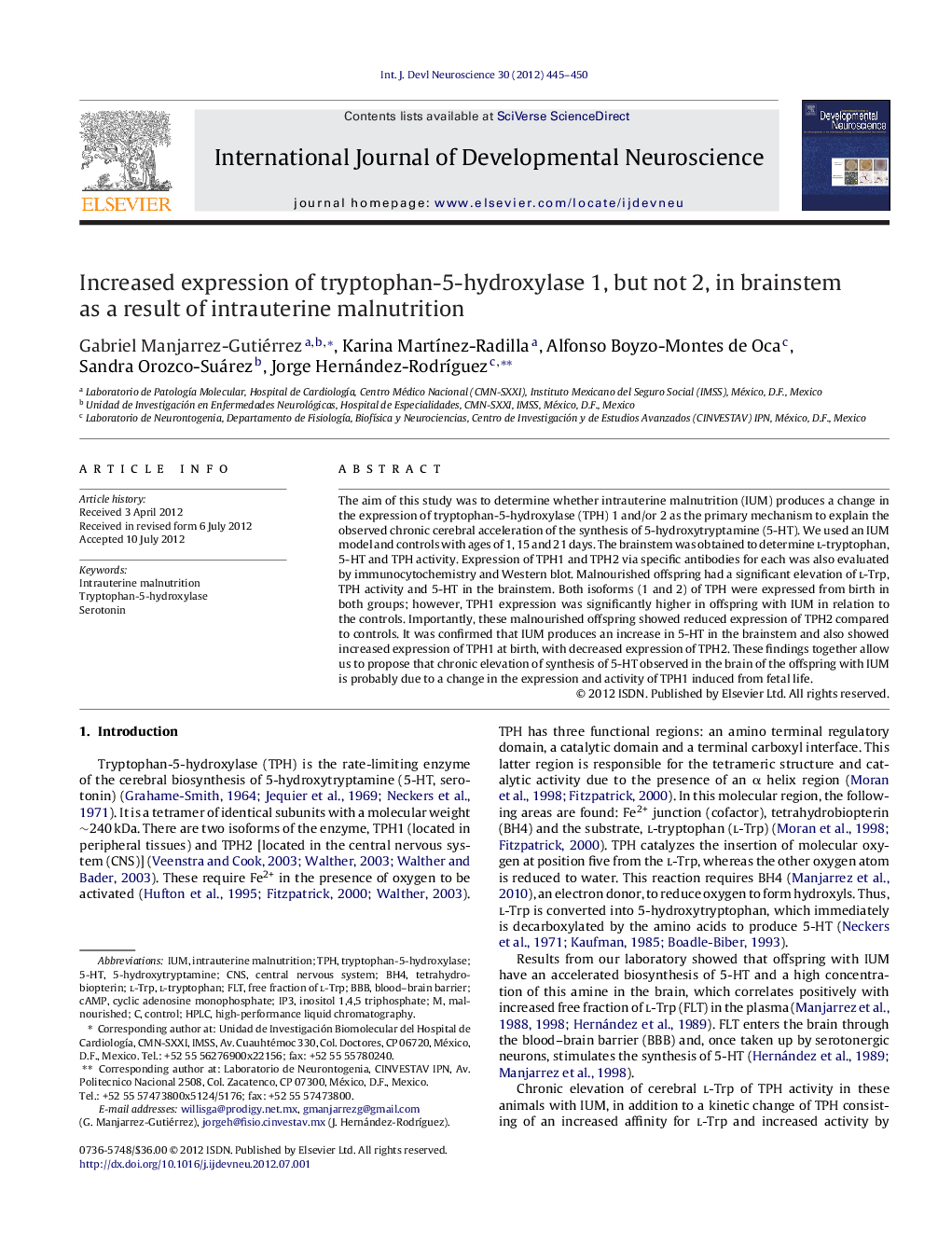| Article ID | Journal | Published Year | Pages | File Type |
|---|---|---|---|---|
| 2786213 | International Journal of Developmental Neuroscience | 2012 | 6 Pages |
The aim of this study was to determine whether intrauterine malnutrition (IUM) produces a change in the expression of tryptophan-5-hydroxylase (TPH) 1 and/or 2 as the primary mechanism to explain the observed chronic cerebral acceleration of the synthesis of 5-hydroxytryptamine (5-HT). We used an IUM model and controls with ages of 1, 15 and 21 days. The brainstem was obtained to determine l-tryptophan, 5-HT and TPH activity. Expression of TPH1 and TPH2 via specific antibodies for each was also evaluated by immunocytochemistry and Western blot. Malnourished offspring had a significant elevation of l-Trp, TPH activity and 5-HT in the brainstem. Both isoforms (1 and 2) of TPH were expressed from birth in both groups; however, TPH1 expression was significantly higher in offspring with IUM in relation to the controls. Importantly, these malnourished offspring showed reduced expression of TPH2 compared to controls. It was confirmed that IUM produces an increase in 5-HT in the brainstem and also showed increased expression of TPH1 at birth, with decreased expression of TPH2. These findings together allow us to propose that chronic elevation of synthesis of 5-HT observed in the brain of the offspring with IUM is probably due to a change in the expression and activity of TPH1 induced from fetal life.
► Individual that experienced intrauterine malnutrition show deficits sensory responses. ► Nutritional stress may profoundly influence the biosynthesis of cerebral 5-HT. ► TPH1 expression was significantly higher since birth in rats with intrauterine malnutrition than in control rats. ► Malnourished offspring showed reduced expression of TPH2 compared to control offspring.
